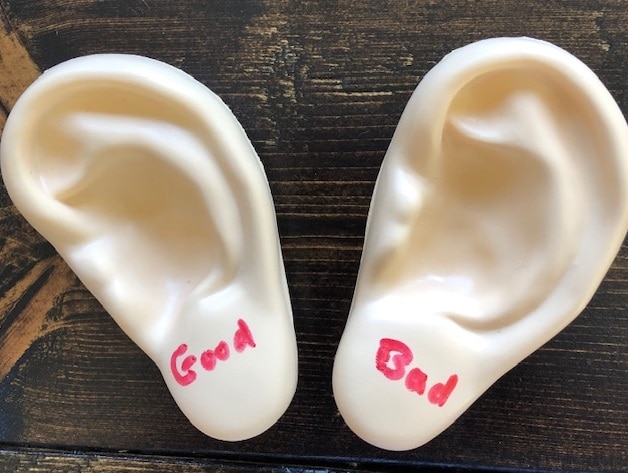If you have hearing loss, you probably already know that there are a lot of habits and routines involved in the hearing loss life.
And, if you’re honest, you’ll also admit that while many of these are good things to do, some habits are not, and some routines could use improvement.
But first, what’s the difference between a habit and a routine? According to them that knows, a habit is an action we do often in a regular and repeated way – sometimes we do it without thinking about it. An example: when someone is talking, I have a habit of tilting or turning my head to have my ‘good ear’ more in line with the speaker’s face. I frequently do this and ususally without any conscious thought.
A routine involves a greater degree of intent and effort and is a regular procedure. When I go to bed at night, my routine is to remove my hearing aid and sound processor (of my cochlear implant), turn them off, and place them in the drying aid, which I then turn on. This is a good thing, whereas a bad habit would be to pull off my technology and place it on my bedside table.
Why is that bad, you ask? Well, speaking from experience, a dog could come along during the night, look at these strange objects, and think, wowza, new doggie treats! You will eventually wake up to the horror – springs and wires littering the floor, with some bits still clinging to the curly hairs of the mutt’s mouth. This dog may not have cared for the taste of plastic and wires, but he sure enjoyed its crunchiness. In this case, a bad habit led to a productive night time routine.
What are some good hearing loss habits? Based on the sad story I just told, having a backup hearing aid in case of disaster is a good habit and I never travel without one. So, also, is carrying spare batteries, wax guards, and device cleaners with you anywhere you go; some of us carry kits containing anything we might need in an emergency. (Or is this a routine? Ah, who cares, it’s a good thing to do.)
What is definitely a good routine: changing your hearing aid’s wax guards on a regular basis. Some hearing loss websites advise changing them whenever your hearing aid is not sounding clear. The problem with using this as the benchmark is that ‘we hear what we hear’ and may not realize that sound is not coming through as clearly as it should. It’s also difficult to tell if a wax guard has reached the end of its useful life just by looking at it, so I change my wax guard every couple of weeks, or every two or three battery changes. Recently a hearing loss friend was with me when I changed my wax guard; she was intrigued because she never, ever, does this because her audiologist did at checkups. I changed her wax guard for her and she jumped a foot – the sound was that much better!
When we self-identify as having hearing loss, most of us have a little routine – a set spiel, a tiny speech – that we use. One of mine (I have several) goes something like, “Excuse me, I have hearing loss and I rely partly on speechreading. Could you kindly move your hand away from your mouth?” But I also have the bad habit – as does almost every person with hearing loss – of not always explaining that I’m having difficulty hearing or following. Instead, I just pretend to understand. This is bluffing – when we give all the signs that we’re participating in the conversation, but in reality, we haven’t got a clue what’s going down. This is definitely a bad habit and what makes it worse, sometimes we just slip into bluffing without realizing it.
When traveling, it’s worth taking the time to follow a good hearing loss routine. Some people, when booking travel online, indicate their hearing loss, but this option isn’t always available. But it’s good habit to ask the gate staff for help with boarding procedures (when there is no visual information) and to let flight attendants know you may not hear important public address announcements. I include all my hearing loss paraphernalia in my carry-on baggage, because if my luggage goes missing, I can do without clean clothes for a day or two but I absolutely must have all the stuff that helps me hear.
Think about your hearing loss habits and routines – is it time to improve, add or delete any? If your goal is better communication, then now might be a good time.







Gael, do you live in Victoria, BC? I’m from Ladysmith.
Lorna
(in Seattle, Wa. now)